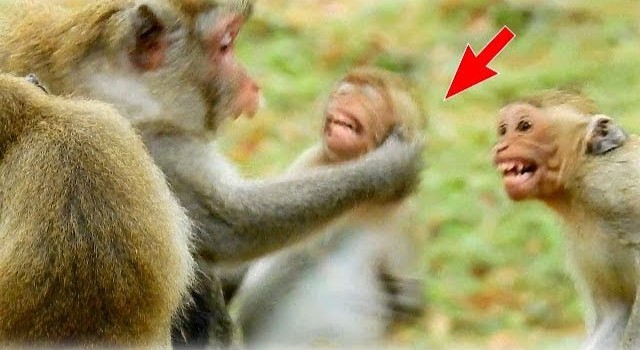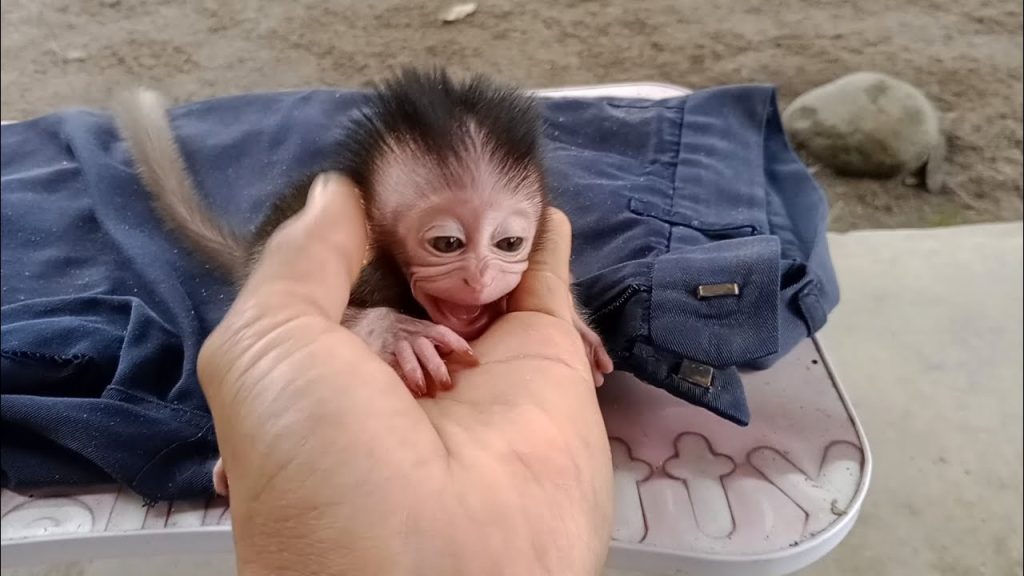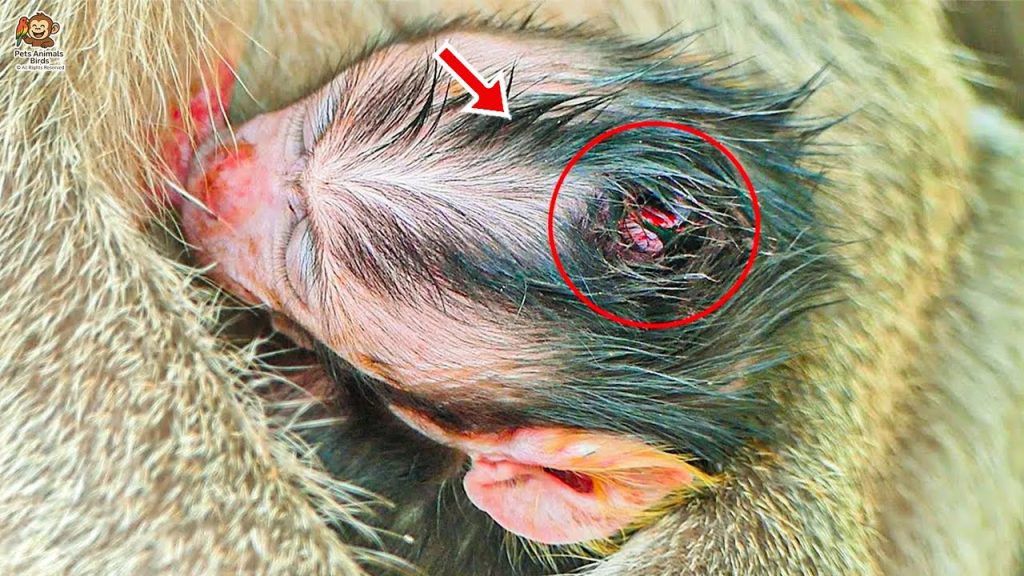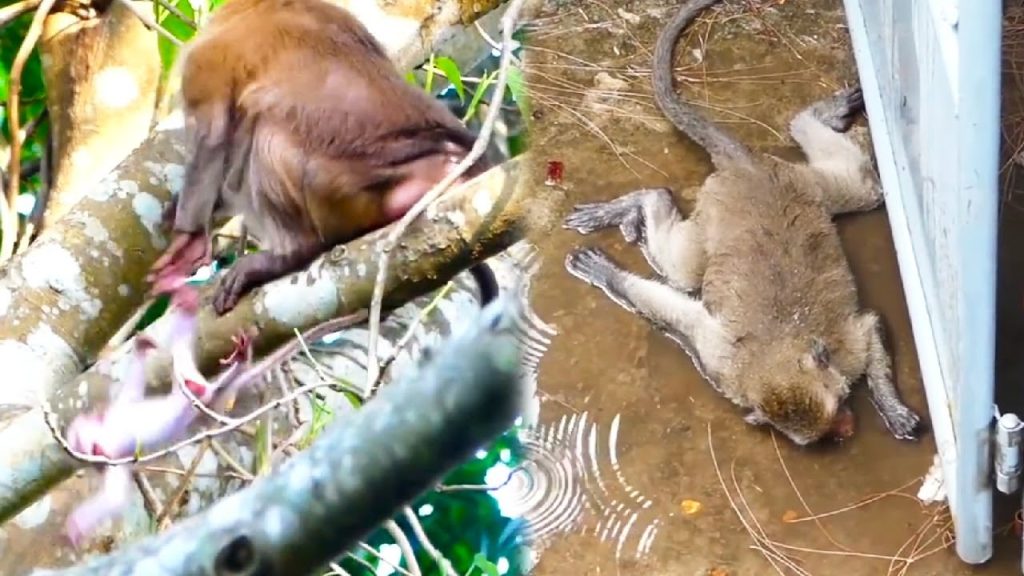
In the heart of the troop, tensions quietly rose during what should have been a peaceful moment. Jane, a protective and experienced mother, was caring for her newborn baby, Janna. The tiny infant was fragile and hungry, still adjusting to the outside world.
Nearby, young Janet—still a baby herself—had been under Jane’s care recently, treated almost like an older sibling to little Janna. Jane, perhaps overwhelmed, nudged Janet closer to the newborn, hoping she would comfort or help Janna adjust—maybe by allowing closeness or sharing some warmth.
But Janet, confused and still immature, pulled away. She didn’t understand what Jane expected and reacted with resistance. Jane, already under stress from caring for a newborn, reacted strongly—more forcefully than she should have.
She grabbed Janet, shaking her and letting out loud warning cries. To the troop, it was clear: Jane was upset. Janet cried loudly, frightened and unsure of what she had done wrong. It was a heartbreaking moment.
Older monkeys sometimes expect younger ones—especially those previously under their care—to assist with new arrivals. But baby monkeys like Janet are still learning. They don’t yet understand responsibility or nurturing behavior.
Thankfully, another older female soon intervened, moving between them and helping to calm Jane. Janet retreated to a safe branch, still crying, while Jane turned her attention back to Janna.


